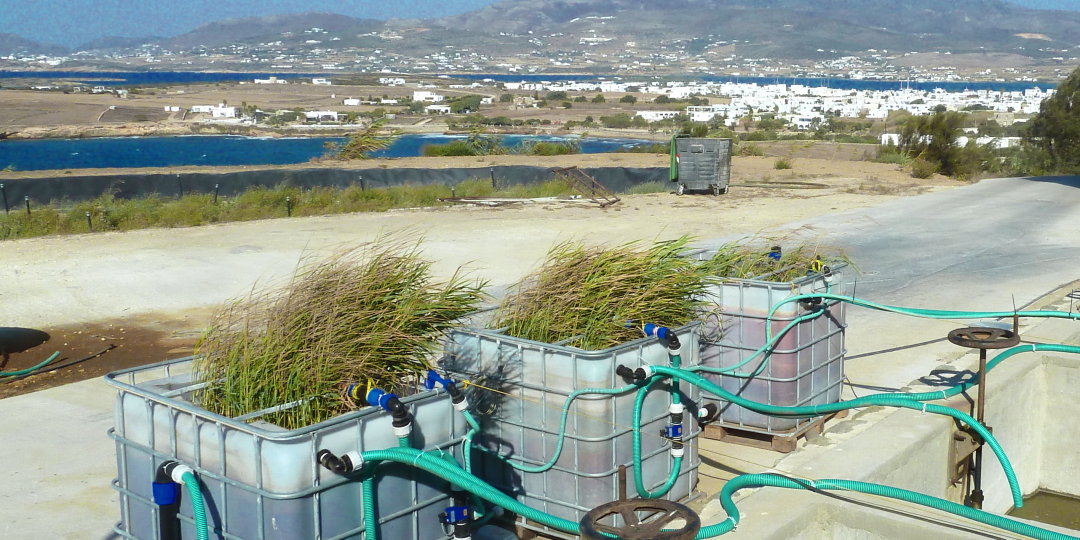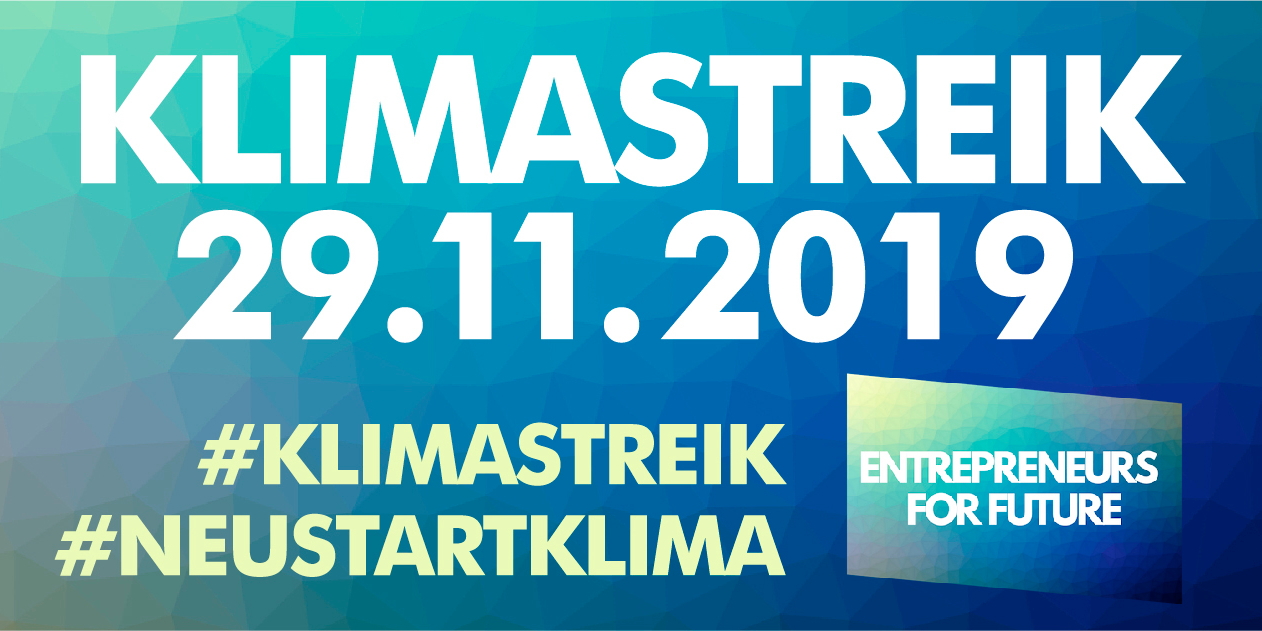

Retention soil filters for urban waters in China
Again - Global climate strike on November 29th
Design recommendation for combining nature based and technical solutions
In the European joint project AquaNES, various combinations of nature based and technical systems were investigated for their suitability for wastewater treatment from 2016 to 2019. The results were described in a handout for planners and operators describing such and comparable systems. The recommendations show the potentials and reasonable applications of such combinations.
The first part of the document deals with soil filters as part of combined systems and describes possible combinations with technical pre- and post-treatment. The different possible applications of constructed wetlands as primary, secondary or tertiary treatment as well as dual use for combined sewer overflows and as a tertiary treatment stage are highlighted. Important design parameters, in particular the German code of practice DWA A-262 (2017) for the dimensioning, construction and operation of constructed wetlands for municipal wastewater treatment are summarized here and combined with the results from the demonstration sites and the experience of the authors.
In the second part, the five AquaNES sites in Greece, Germany, and Great Britain, their different applications, design and operation data, and monitoring results are presented. The two Greek sites, the Antiparos and Thirasia WWTPs, are both located on tourist-oriented islands in the Aegean Sea. The solution at Antiparos focused on creating a robust, nature-based system that could handle fluctuating hydraulic and organic loads and meet the Greek standard of water reuse for irrigation. At Thirasia, a soil filter was integrated into a number of different engineering processes. Here, photocatalysis via TiO2 was also experimented with and downstream membrane filtration was tested. In Germany, an innovative retention soil filter was constructed in Rheinbach (Erftverband) for the combined use as a fourth treatment stage and for treating combined sewer overflows. At the Schönerlinde wastewater treatment plant, the combination consisted of an ozone plant and a downstream soil filter. Here, the retention of organic micropollutants such as pharmaceutical residues and metabolites in the effluent of the wastewater treatment plant was also demonstrated. Finally, the effectiveness of soil filters with reactive filter material made from blast furnace slag was investigated in long-term operation at the Packington site (UK).
Further information: Heribert Rustige
Download: Report

Design recommendation for combining nature based and technical solutions
IWA Water Reuse 2019 in Berlin visits Hobrechtsfelde
Again - Global climate strike on November 29th
Mankind is facing “unprecedented suffering”, according to scientists from all over the world, if it does not seriously fight against global warming. 11,000 scientists warn against a “Continue like before”. Scientists warn that three quarters of the 184 pledges submitted to save greenhouse gases are not ambitious enough. Measured against the goal of reducing emissions by at least 40 percent by 2030, only the 28 EU states and seven other countries are on the right track (quote: ARD, Tagesschau 5.11.2019).
Already on 20 September the AKUT partners joined the call of commercial enterprises with Entrepreneurs For Future. It demands an ambitious climate protection law from the Federal Government of Germany.
However the federal government has passed a probably ineffective climate law, which will not reach the goals. We share the protest of the students of Fridays For Future.
Few days before the world’s governments meet in Madrid for the World Climate Conference, we need to reaffirm our commitment to effective climate legislation so that there are no more excuses for policy makers not to act effectively.
The Federal Government justifies its hesitant measures with the fact that it cannot impose consistent climate protection on people. However, climate protection and social policy must not be played off against each other.
For the first time, climate activists, environmental, development, social and welfare organisations are joining forces. We show: Climate protection and social justice belong together indivisibly. People in the Global South and future generations must have a climate-friendly future! A social-ecological turn is a huge chance for a fairer society – here and worldwide!
For more than 30 years AKUT has been working on technical solutions for environmental protection. We can no longer solve the global problem without a strong climate protection program also of the German government and a change of awareness among each individual.
Go out with us and with millions of people this Friday 29 November 2019 to the streets and demand effective climate protection now and for all.

Again - Global climate strike on November 29th
BLUE PLANET Berlin Water Dialogues meets AquaNES
IWA Water Reuse 2019 in Berlin visits Hobrechtsfelde
From 16 to 20 June 2019, the International Water Association IWA hosted its “12th International Conference on Water Reclamation and Reuse” in Berlin: over 400 experts from more than 40 countries, more than 200 lectures, more than 120 posters, exhibitions, workshops and technical tours on the complex of “Overcoming Water Stress through Water Collection and Reuse”. In times of advancing climate change, water management is becoming increasingly important, as we experience in our daily work.
Part of the program was a tour of the former sewage farms in Berlin Hobrechtsfelde called “Hobrechtsfelder Rieselfelder”. AKUT has organized that tour.
In the information centre “Gut Hobrechtsfelde”, the former warehouse, there is a beautifully prepared exhibition on the history of Berlin’s wastewater treatment, in particular the sewage farms. The model of the agricultural use of the sewage farms around 1920 shown there is designed precisely. The Hobrechtsfelder Rieselfelder were taken out of operation after the commissioning of the sewage treatment plant north (today: WWTP Schönerlinde) in 1985. Both the drainage pipes, which continued to drain the area, and the heavy metals and phosphates, which had accumulated in the soil over the decades, remained in the soil. The reirrigation of the sewage farms was planned and implemented in 2004 by the AKUT / P2M / Spiekermann GmbH working group. A part of the existing drainage ditches including the drainage pipes were sealed, whereby a long retention time was aimed at. Re-irrigation of areas that had fallen dry became possible. This is done with already purified wastewater from WWTP Schönerlinde, which is further purified and hygienised at the request of the Lower Water Authority within the Hobrechtsfelder Rieselfelder. The treatment is carried out without electrical energy demand and with the lowest operating costs, as no operating resources are used. A system consisting of different zones, such as deep water zone, shallow water zone, overgrown zones and ground passages, has been created for the more extensive near-natural wastewater treatment within this so-called cleaning biotope. Since only limited data were available for the effect of the individual components, AKUT had planned pilot filtration plants / test basins for practical evaluation of the possible variants. Within the framework of a research project, not only nutrient degradation rates and hygienization were investigated, but also the removal of pharmaceutical residues and of other micropollutants. After completion of the test operation, the pilot plant has been adjusted for continuous operation. A good ten years after the re-irrigation had started, not only a large number of birds but also beavers have settled in the area. As planned, the sewage farms and the surrounding biotope are used as a silvopasture system where livestock and horses are moving independently with the side effect of low cost landscape conservation.
The conference participants from all over the world were impressed by the near-natural technology of the 19th century with sewage farms for the treatment and agricultural use of wastewater and nutrients. But even in the 21st century, when regional water scarcity is expected, there is great interest in near-natural solutions to strengthen the water balance through water recycling. At the same time, carbon sequestration in wetlands around the world represents an important contribution to climate protection.
We would like to take this opportunity to thank
- DECHEMA and Berliner Wasserbetriebe BWB for support in the organisational handling of the tour;
- the Pankow forestry office and
- the horse farm “Pferdekultur Gut Hobrechtsfelde” for opening the exhibition and the guided tour.